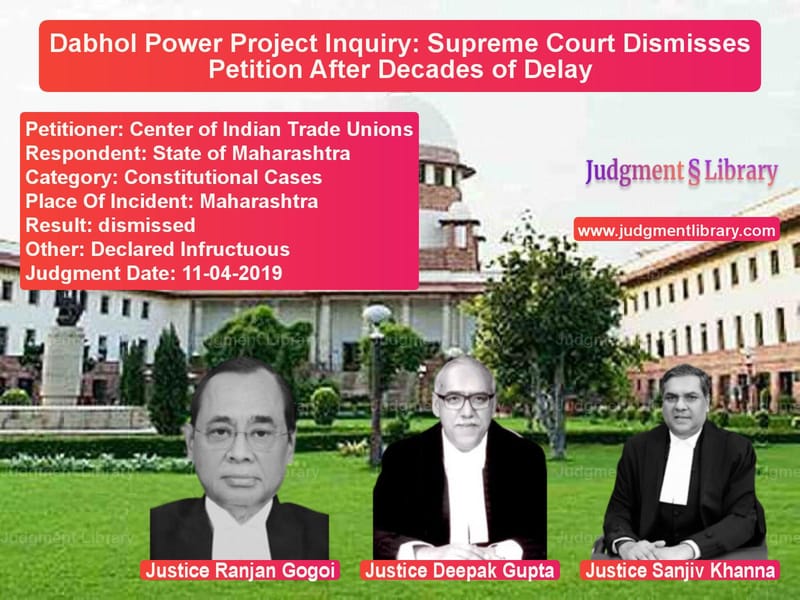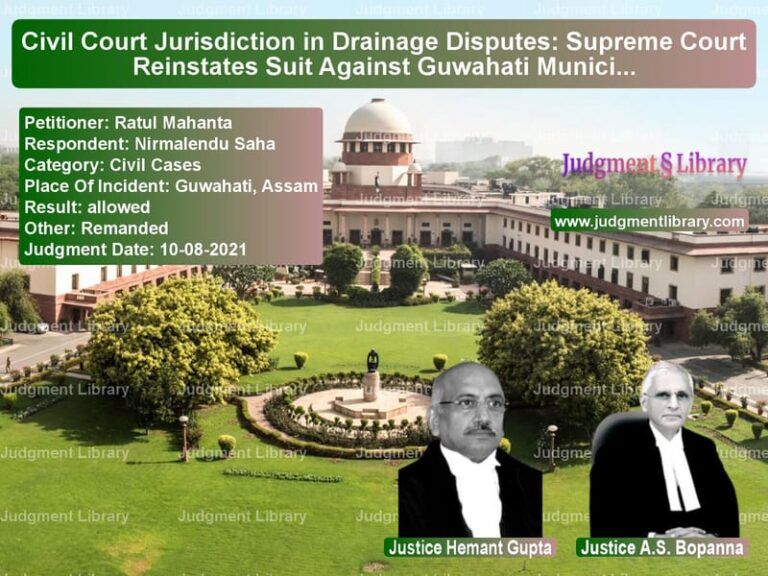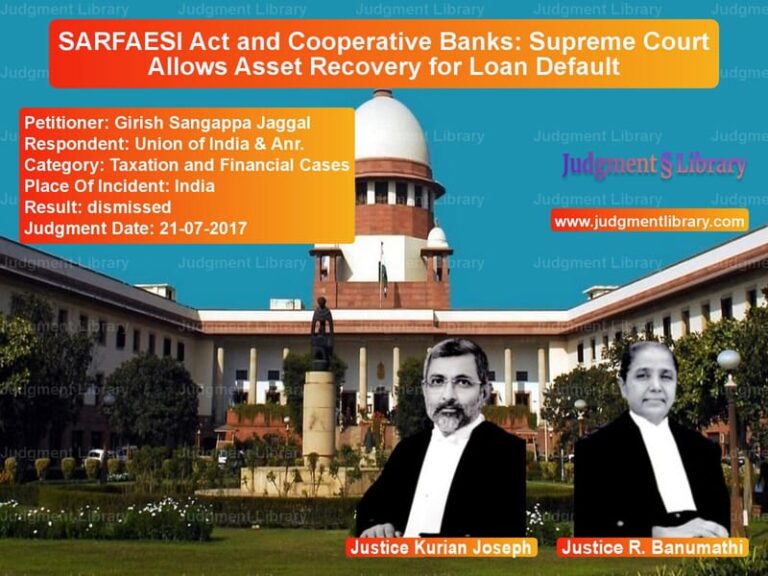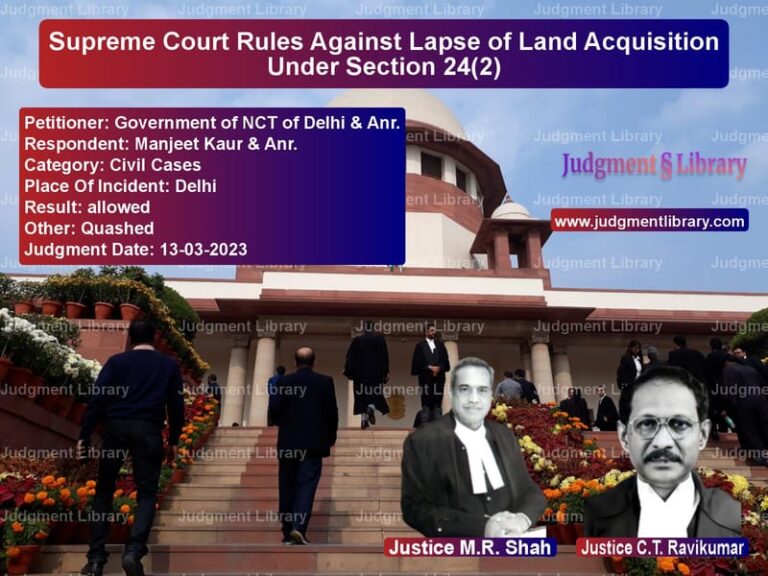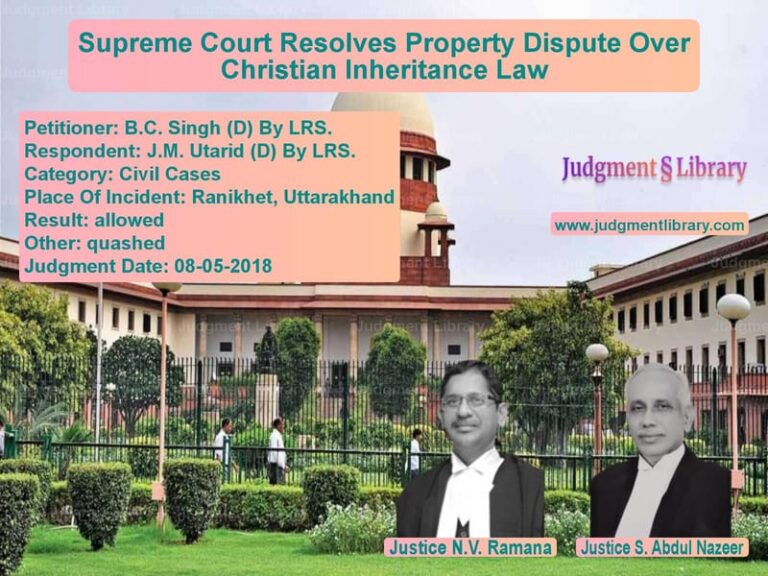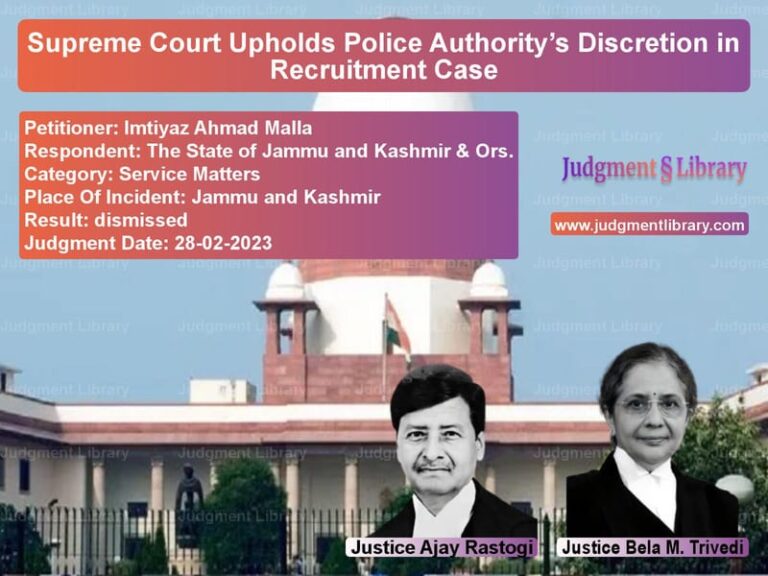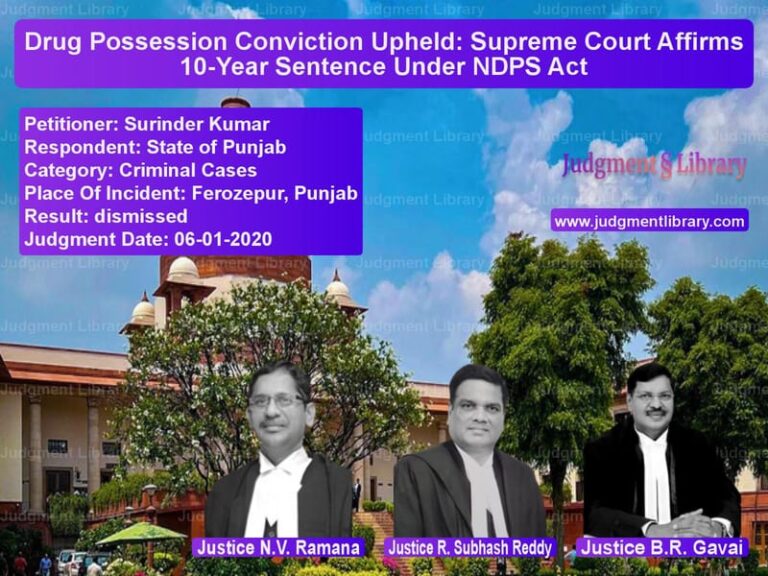Dabhol Power Project Inquiry: Supreme Court Dismisses Petition After Decades of Delay
The case of Center of Indian Trade Unions vs. State of Maharashtra revolves around the controversial Dabhol Power Project (DPC) and allegations of corruption, misrepresentation, and procedural irregularities in awarding contracts. The Supreme Court ultimately dismissed the petition, citing the passage of time and the inability to hold individuals accountable after nearly three decades.
Background of the Case
The dispute traces back to the execution of the Power Project Agreement (PPA) in 1993 between the Maharashtra State Electricity Board (MSEB) and Dabhol Power Corporation Ltd. (DPC). The petitioner, Center of Indian Trade Unions (CITU), challenged the agreement before the Bombay High Court, raising concerns over corruption, bribery, fraud, and lack of transparency.
The Bombay High Court acknowledged that the agreement raised serious concerns. However, it dismissed the petition on the grounds that there was insufficient material to prove allegations of corruption.
The petitioner then approached the Supreme Court, which issued notice only on the issue of “the accountability of the State of Maharashtra” for inconsistent positions taken over the years.
Arguments by the Petitioner
The petitioner, CITU, contended that:
- The execution and modification of the PPA were marred by procedural irregularities and potential corruption.
- The agreement imposed unfair financial burdens on the Maharashtra State Electricity Board and, by extension, the public.
- The State of Maharashtra’s shifting stance on the project demonstrated a failure of governance and warranted further inquiry.
- There was a need for judicial oversight to assess accountability at both political and administrative levels.
Arguments by the Respondent
The State of Maharashtra countered that:
- The project agreements were entered into following due legal processes.
- The passage of time made it impractical to continue investigating the matter.
- Significant changes had taken place in project ownership and administration, making further inquiries redundant.
- Most officials and decision-makers involved had since retired, limiting the feasibility of any remedial action.
Judicial Commission of Inquiry
During the pendency of the case, the Maharashtra government constituted the Godbole Committee in 2001 to investigate the project. The committee’s findings highlighted:
“Serious illegalities and infirmities in the award of the contract and approval processes, which were prima facie against public interest. The failure of governance was broad, across different governments, at both administrative and political levels.”
However, the committee was divided on whether to recommend a full judicial commission of inquiry. While two members supported the formation of a commission, three members disagreed, arguing that it would serve no useful purpose.
Despite the committee’s concerns, the State of Maharashtra appointed Justice S.P. Kurdukar to lead an investigation in 2001. However, due to legal proceedings initiated by the Union of India in Original Suit No. 2 of 2003, the commission’s proceedings were stayed and remained stalled for over a decade.
Supreme Court’s Observations
The Supreme Court analyzed whether the judicial inquiry should continue. It observed:
“Though normally in such a case a judicial inquiry should have been conducted, more than a quarter of a century has elapsed since the first PPA was executed. The foreign corporation and the original project proponents are no longer available. Most of the senior officials involved have retired, and virtually no action can be taken against them.”
The Court also noted:
“While there were clear lapses in governance, the matter has remained unresolved for decades. The continuation of the judicial commission of inquiry would serve no meaningful purpose at this stage.”
Final Judgment
The Supreme Court dismissed the petition and concluded that:
- The long passage of time made accountability impossible.
- The non-availability of key witnesses and officials prevented effective inquiry.
- Proceeding with the commission of inquiry at this stage would not serve the interests of justice.
As a result, the petition was dismissed, and the judicial commission was deemed unnecessary.
Significance of the Judgment
This ruling highlights the challenges of ensuring accountability in long-standing governance failures. The Court acknowledged procedural lapses but also emphasized the practical limitations of seeking justice after decades have passed. The case underscores the importance of timely intervention in matters of public interest.
Petitioner Name: Center of Indian Trade Unions.Respondent Name: State of Maharashtra.Judgment By: Justice Ranjan Gogoi, Justice Deepak Gupta, Justice Sanjiv Khanna.Place Of Incident: Maharashtra.Judgment Date: 11-04-2019.
Don’t miss out on the full details! Download the complete judgment in PDF format below and gain valuable insights instantly!
Download Judgment: Center of Indian Tra vs State of Maharashtra Supreme Court of India Judgment Dated 11-04-2019.pdf
Direct Downlaod Judgment: Direct downlaod this Judgment
See all petitions in Public Interest Litigation
See all petitions in Separation of Powers
See all petitions in Legislative Powers
See all petitions in Judgment by Ranjan Gogoi
See all petitions in Judgment by Deepak Gupta
See all petitions in Judgment by Sanjiv Khanna
See all petitions in dismissed
See all petitions in Declared Infructuous
See all petitions in supreme court of India judgments April 2019
See all petitions in 2019 judgments
See all posts in Constitutional Cases Category
See all allowed petitions in Constitutional Cases Category
See all Dismissed petitions in Constitutional Cases Category
See all partially allowed petitions in Constitutional Cases Category

